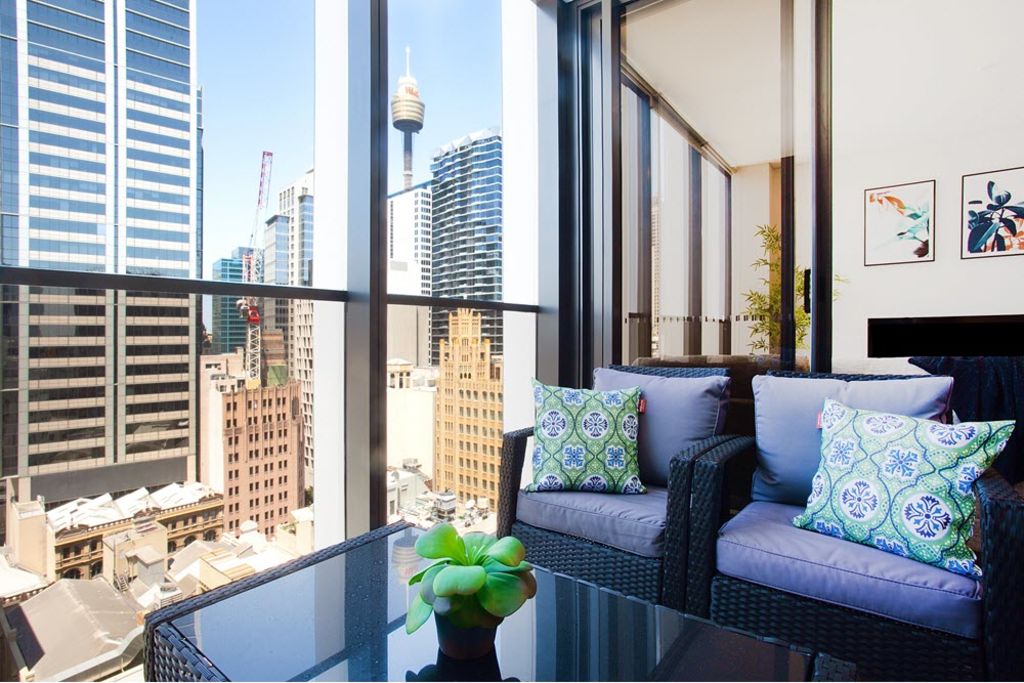
Corporate accommodation startup Urban Rest expands into Melbourne
A Sydney-based accommodation startup targeting the corporate traveller market has expanded into Melbourne, with the aim of managing at least 100 serviced apartments in the city by the end of the year.
Founded in 2017 by David Whelan, Urban Rest brought its first 20 apartments to Melbourne’s CBD and Southbank area in late July and has 74 properties in Sydney in its portfolio.
It does not directly own any properties, but leases apartments, typically five to 15 in one complex, and sub-lets it out to corporate travellers, with clients including McKinsey & Co, Boston Consulting Group, KPMG, Deloitte and Canva.
The startup also operates properties, some entire buildings, on behalf of owners – particularly developers holding residual stock due to the residential market downturn – who are seeking a higher return than what can be found on the long-term rental market.
“We are trying to disrupt the longer-term corporate accommodation industries, particularly the existing serviced apartment providers,” Mr Whelan told Commercial Real Estate.
“The existing industry has either properties that are old with little thought to design and low-quality service, or new with decent styling and exorbitant pricing.
“By offering professionally styled, full-sized properties in a wide range of locations and at much more budget-conscious prices, we are looking to emulate in the serviced apartment industry what Airbnb did in the hotel industry, except ensuring consistent quality and processes in order to appropriately service the corporate market.”
Mr Whelan said that their business model allowed the company to keep its overheads lower.
They were also able to reduce their costs by outsourcing hotel-type amenities to external providers, with partnerships with food delivery platforms Uber Eats and Deliveroo, on-demand massage service Blyss, as well as other services including drycleaning, medical and gym memberships.
Business travellers often faced the challenge of finding accommodation options that balanced both price and quality, while sticking with one provider for trips to cities across the country, Mr Whelan said.
“The push into Melbourne (along with the rest of the planned expansion) has been purely demand driven, with many of our existing (and) potential clients preferring a national distribution in order to provide consistency for their staff.”
He said that Urban Rest’s corporate rates were about 30 per cent cheaper than an equivalent hotel room.
The company already has locations slated for Brisbane and Adelaide before the end of the year, and has its sights set on New Zealand as its first international market.
‘Lifeblood’ of hotels
“Serviced accommodation in Australia alone is a $3.5 billion-a-year industry, which represents a huge opportunity because of how traditionally under served it has been,” he said.
“The continual shift to employee health and wellbeing as a factor in deciding their accommodation, especially over the medium to long term, means that large corporates simply want better options than have been available in the market.”
Domestic business trips increased by 7.7 per cent in the year to September 2018, according to Deloitte’s latest Tourism and Hotel Outlook.
This growth has been watched closely by another major accommodation player, Airbnb.
Considering work-related bookings as one of their fastest growing segments, it has zeroed in on this market through its Airbnb for Work, which filters homes with features frequently searched for by business travellers such as laptop work space, wifi and 24-hour self check in.
Colliers International’s head of hotels Gus Moors said the likes of Airbnb for Work and Urban Rest would find themselves competing against traditional serviced apartment operators.
“The reason why corporates have shifted from hotels, where they get a full level of service, and transitioned into serviced apartments (is) because they like the extra space their apartment offers, particularly for a longer stay,” Mr Moors said.
But he pointed out that many serviced apartment groups offer a limited level of service traditionally provided by hotels, including front reception, initial check-in, general service of concierge.
“If Urban Rest and Airbnb can match that same level of service, then I think they will compete with the likes of Adina and Quest, but if they don’t, my sense is that they will struggle to attract corporate travellers.”
Mr Moors said business travellers had always been the “lifeblood” of the traditional hotel market and that was why groups like Airbnb and Urban Rest were “wanting a piece of that corporate market”.
“You can pretty much establish that with CBD hotels, 60 to 80 per cent of your Monday to Thursday guests are there for the purpose of business,” he said, adding that for serviced apartments, it takes up “at least a third of their business”.
As serviced apartments and hotels were generally competitors, the trends seen in the hotel industry – including improved amenities, guest technology such as in-room entertainment and self check-in – were also playing out in the serviced apartment sector, Mr Moors said.
“You will see more and more of these in serviced apartments, particularly where institutional capital owns the stock because they will be prepared to invest in that technology.”










